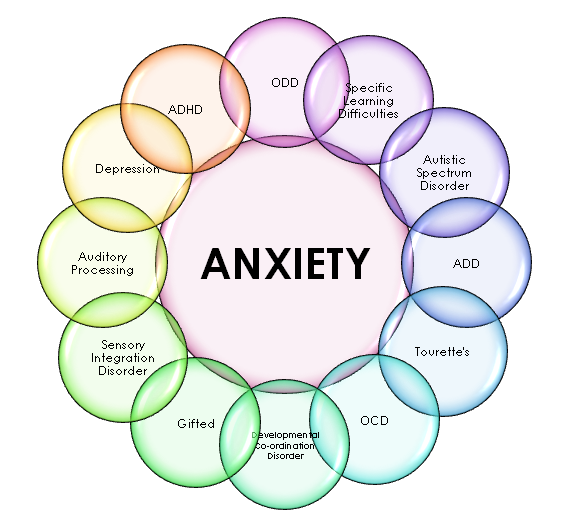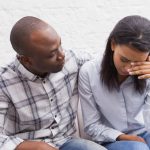
Most of us get nervous when there’s an important event coming up. But, that’s not always anxiety.[1] Reports have shown that around 40 million Americans have an anxiety disorder. Anxiety disorders can vary from being general to even severe ones such as panic disorders. In the case of panic disorders, the person may suffer from constant episodes of trembling, shaking, heart palpitations and sweating.[2]
Anxiety needs to be managed in the initial stages only, or it will grow to harm you. Several tips and strategies can help to reduce anxiety. Most people prefer going to talk therapy or medications to ensure relaxing anxiety.
Anxiety is different for different people. Not everyone goes through the same episodes. Certain changes in lifestyle can be of great help for reducing stress and lifestyle. It is necessary to follow a healthy diet, proper sleep schedule, taking care of yourself and more to ensure that you get the most from it.[3]
Some of the prominent strategies that can help you balance anxiety include the following.
Stay in the present
Anxious people often fear about ‘what is going to happen.’ Rather than fear about what’s going to happen, one should stay in their own time zones. Irrespective of the future, you should first be concerned about the present about what’s going on around you.
Expert psychologists suggest to analyse the present situation and proceed. If it doesn’t help you, it is better to make an appointment with your therapist and get in touch with them. You need to be focused on yourself and sort out the matters at the moment itself rather than pushing it for the future.[4]
Understand what is happening
Panic attacks can worsen and make you feel as if you’re dying. The feeling is the same as that of a heart attack.
But, it’s not a heart attack. Rather than being anxious, you will need to constantly remind yourself that you’re just having a panic attack, which is temporary and harmless. You are not dying, and your body will immediately switch to a fight-or-flight response. It is what will keep you going.[5]
Take deep breaths
Deep breathing plays an important role in helping you calm down. If you follow your psychologist’s expert, you will come to know about different breathing techniques.
Certain yoga asanas can help you practise these efficient breathing exercises. There is absolutely no necessity of counting the number of breaths. You should be taking deep breaths and be focused on inhaling and exhaling.
If you are experiencing a panic attack, you will need to take deep breaths to calm yourself. Experts suggest that deep breathing helps to re-center the mind and slow down the thinking capacity.[6]
Stay hydrated
Staying hydrated has always been of help. Most people with anxiety attacks have shown positive signs of recovering by drinking plenty of water.
Water helps to relax your nerve muscles, which further plays an important role in boosting the immune system and calming down your nervous system. Triggers in your nervous system have been reported to be the leading cause of anxiety attacks.[7]
If you are prone to anxiety, make sure to carry a bottle of water with you always. Anxiety attacks are unpredictable, and one small trigger can bring down severe symptoms.
Keep yourself busy
Should you feel down, you make sure to keep yourself busy. Being active and doing something can help you calm down to a significant aspect.
You can stand up, take a walk and move around a bit to bring the most. Any action that interrupts your flow will be helpful. Often it happens that the person loses consciousness due to anxiety. However, moving around a bit helps to bring back stability and achieve a sense of control.[8]
Keep away sugar
Sugar is your worst enemy if you are prone to anxiety or panic attacks. A lot of people have cravings for sweets when they show signs of panic or anxiety.
While you may want to reach out for a bar of chocolate, research has shown that too much sweet during such times can only worsen it. You may drink a glass of water, but it is advisable to avoid protein or sweet things. These only make your body slow and lazy – you are bound to become more susceptible to anxiety.
Never settle for one
You experience anxiety or panic attacks, mostly due to your thoughts. Keeping your thoughts to yourself will only worsen the situation. Instead, you may want to reach out to a loved one, friend, or family, who can pull you out of the situation.[9]
Often talking doesn’t help, which is why people prefer therapy. Talking to your therapist can help you get a clearer and wider picture of your thoughts. You will only kill yourself if you keep your thoughts to yourself. Noting down what scares you can also pull you out and help your brain relax.[10]
Watch something interesting and funny
This is surely the best and easiest technique to ward off your anxiety and panic attacks. YouTube is full of funny videos that are sure to make you roll on the floor, laughing.
Research has shown that laughing can play an important role in boosting mental health. Interestingly, using humor to reduce anxiety is as beneficial as using exercise to reduce anxiety.[11]
Remember, dealing with anxiety issues can take time. Again, there is no harm in consulting a therapist. If you feel like the anxiety attacks are getting excessive, remember to make an appointment with a therapist.
[1] https://www.ncbi.nlm.nih.gov/books/NBK513238/
[2] Brenhouse HC, Danese A, Grassi-Oliveira R. Neuroimmune Impacts of Early-Life Stress on Development and Psychopathology. Curr Top Behav Neurosci. 2019;43:423-447. [PubMed]
[3] Kuloor A, Kumari S, Metri K. Impact of yoga on psychopathologies and quality of life in persons with HIV: A randomized controlled study. J Bodyw Mov Ther. 2019 Apr;23(2):278-283. [PubMed]
[4] https://www.ncbi.nlm.nih.gov/pmc/articles/PMC2427027/
[5] Zigmond AS, Snaith RP. The hospital anxiety and depression scale. Acta Psychiatr Scand. 1983;67:361–370. doi: 10.1111/j.1600-0447.1983.tb09716.x. [PubMed] [CrossRef]
[6] Balon R. Depress Anxiety. 2006/07/11. Vol. 23. 2006. Mood, anxiety, and physical illness: body and mind, or mind and body? pp. 377–387. [PubMed] [CrossRef] [Google Scholar]
[7] https://www.ncbi.nlm.nih.gov/pmc/articles/PMC5219566/
[8] https://www.ncbi.nlm.nih.gov/pmc/articles/PMC6028227/
[9] Muller JE, Koen L, Stein DJ. Curr Psychiatry Rep. 2005/08/16. Vol. 7. 2005. Anxiety and medical disorders; pp. 245–251. [PubMed] [CrossRef] [Google Scholar]
[10] https://www.ncbi.nlm.nih.gov/pmc/articles/PMC4244714/
[11] Rowa K, Antony MM. Can J Psychiatry. 2005/07/08. Vol. 50. 2005. Psychological treatments for social phobia; pp. 308–316. [PubMed] [Google Scholar]

